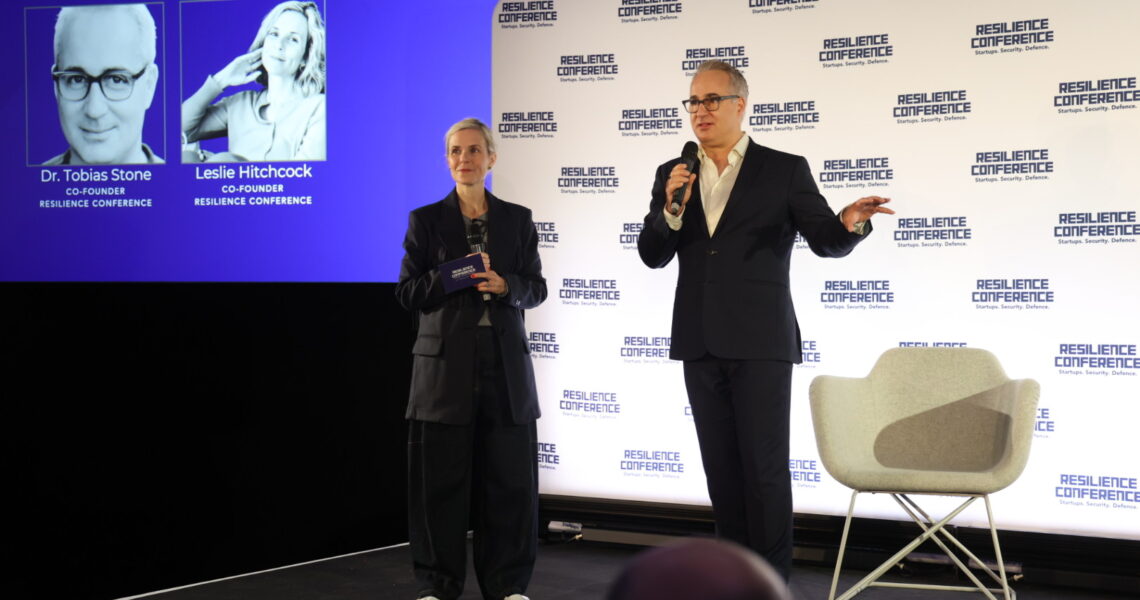Resilience Conference 2024
26 – 27 September 2024, London.
We’re all Mission Partners in the resilience of our country.
(This summary is more for those in my network that aren’t deep into the Defence and Intelligence space, so serves as my personal lightweight take on a recent event I went to. I found it useful to better understand the sectors and hope it is returns. Marketers will also say you can a CTA, call to action, and there is one towards the end.)
I attended the inaugural Resilience Conference put on by Tobias Stone and Leslie Hitchcock, an event bringing together clients, suppliers and investors in the Defence and Intelligence sectors.
Coming more from a Creative Tech and Digital background than Security, at first, I didn’t understand that trio of entities on stage, but it became clear by the end and the urgent need for it.
This was quite a unique conference in that it brought very senior figures from the Defence and Intelligence agencies into the room for quite open discussions on how they can work better with industry, especially the smaller businesses and startups around innovation.
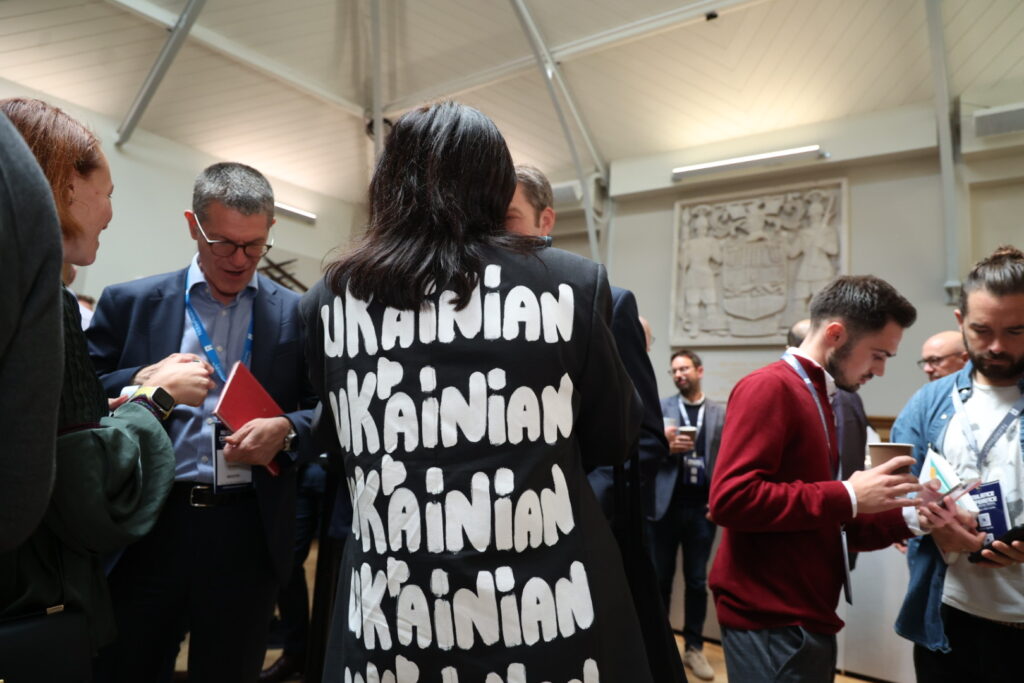
Innovation at pace
There’s a lot of talk on innovation, what it is and what it means to customers. There was no starker explanation than at the start of the war in Ukraine, it took 8 hours to get reconnaissance data back, to assess and respond. Now, the analysis can take 2 minutes, and a response delivered in 5.
I also heard, paraphrasing, that this was the “war of one day innovations”. Something that worked one day, could have a counter measure the next, and then a counter-counter measure created.
In my interview with the CTO of Qinetiq, Mike Sewart, he clarified that ideation is different to innovation. Coming up with new stuff is of little value unless it aligns with a mission. The word mission was heard so often over the conference.
That progress from 8 hours to 7 minutes for a directed response, shows the pace at which innovation can happen, when a clear mission exists.
A large part of this capability was enabled by AI and Machine Learning. This all needs Edge Computing too, the availability of compute resources nearby and not back across the globe to a remote data centre.
Software Defined Defence was another phrase. The context of this is to use innovations through software to increase the capability of existing legacy platforms. To bring new and improved large metal objects will always take years to develop, so there is an opportunity to get even more out of existing machinery as an interim measure.
A senior Army officer made a point of getting Technologists and Tacticians into the same tent. This was also made on stage by the Intelligence agencies, the acronym of one jokingly stands for No Such Agency. It wasn’t so long ago that these would have denied their own existence but were now in the room with us, to bridge that gap and build trust.
This is a reason why we hope the conference comes back for future years.
It’s one thing to say we should work close together, but with security clearances, long cumbersome procurement processes, intellectual property and so on, it can be much more difficult in practice. We shall see, but we are also seeing more challenges and problem sets coming out of the likes of DASA, HMGCC, Defence BattleLab and so on going to industry.
Investors
Both VCs and practitioners on stage emphasised that small businesses don’t need capital, they need contracts.
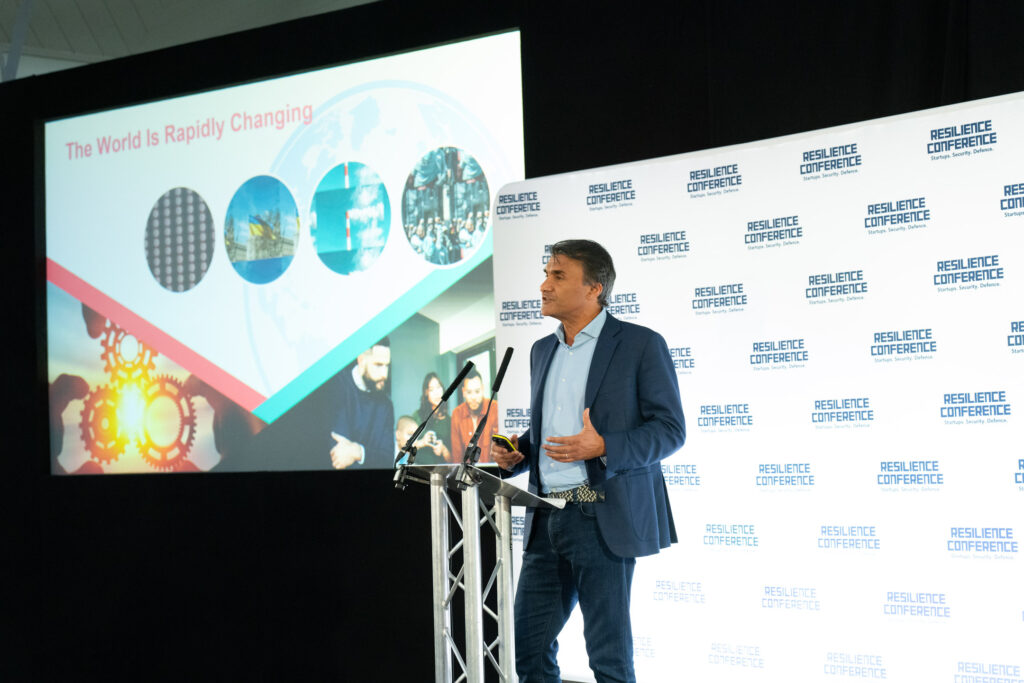
Arun Gupta, who was the Keynote speaker and gave away copies of his book Venture Versus Mission for attendees, made the point that getting a grant showed you were great at applying for grants. Grant funding is in the research area and inherently has risks, in terms of whether it produces any outcomes that may be of use. Contracts in this context sends out demand signals to the sector.
Investors want to invest in something that has less risk and a viable product with a good chance of succeeding. Investing in engineering risk over investing in science risk was the strategy of one investor.
A practitioner on stage said there was a gap when it comes to R&D and product, specifically in “D”, the development stage. Grants fund the research, investors want a product, but to get a viable product, that has been through live iterations with an end user, takes time and money in the development phase.
Is this the funding gap that Government can tackle through contracts? To get 100s or 1000s of items, and then the Primes can deliver the millions at scale and pace?
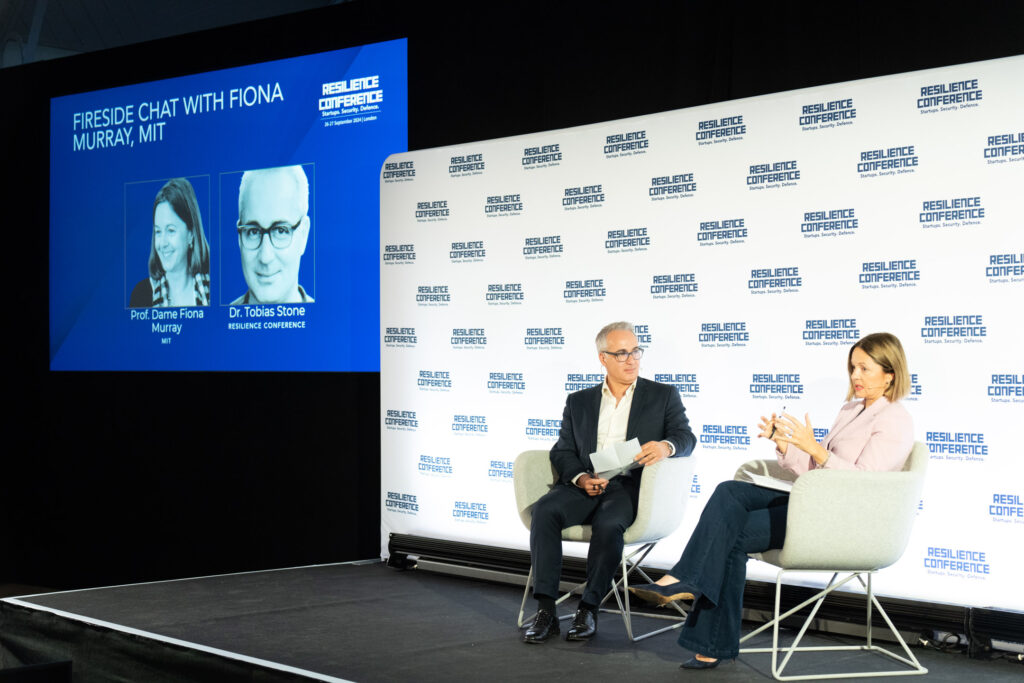
Fiona Murray said that there is missing capital in the middle between ideas creation and mass market production in China. We have also lost a generation of knowledge in manufacturing by outsourcing it all.
This made me think, have we also lost a generation when it comes to RF too, because of the focus on “digital”?
I was beginning to understand why investors featured equally on the stage. For some, working with, or investing in, defence was a no-no, in the same way that a business might not work with the tobacco sector.
What Ukraine has shown, is that experts and small businesses can really make a difference on the half of the equation that is saving lives and protecting democracy. I hear “Tech for Good” being mentioned in the Digital Creative sector relating to charities and the Third Sector, but isn’t this just as good in this scenario?
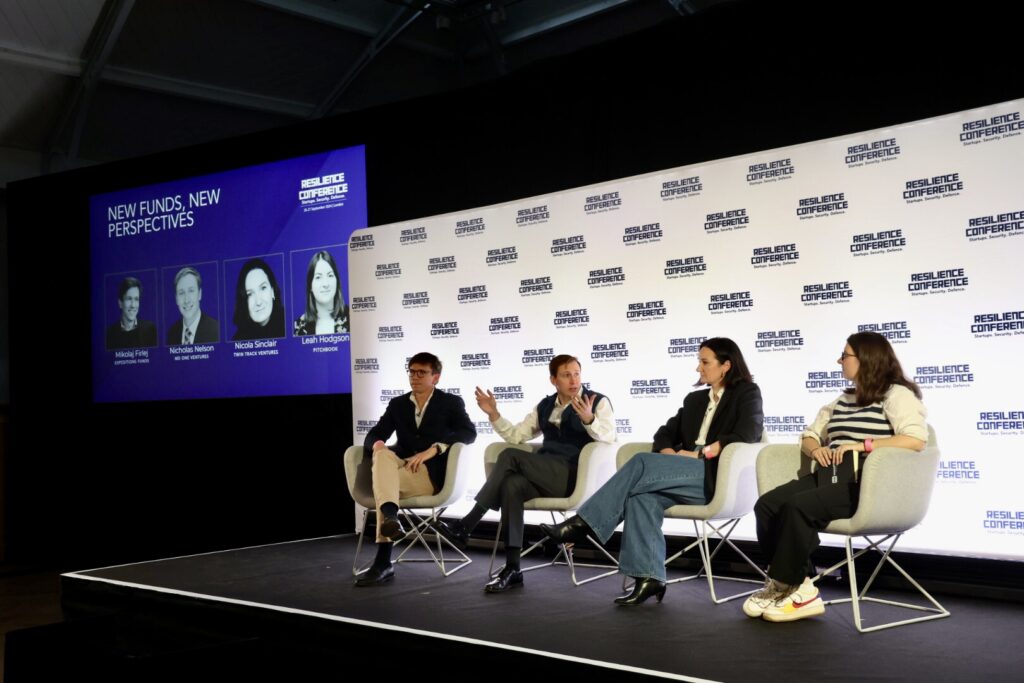
That rapid development cycle takes money and is needed quickly. Faster than procurement and all the paperwork, and discussions beforehand. I get the feeling this is where Venture Capital comes in. The returns may not be as great as other tech companies in their portfolio, but because of the mission, this all needs a different approach by all parties.
Investors can help boost innovation at pace.
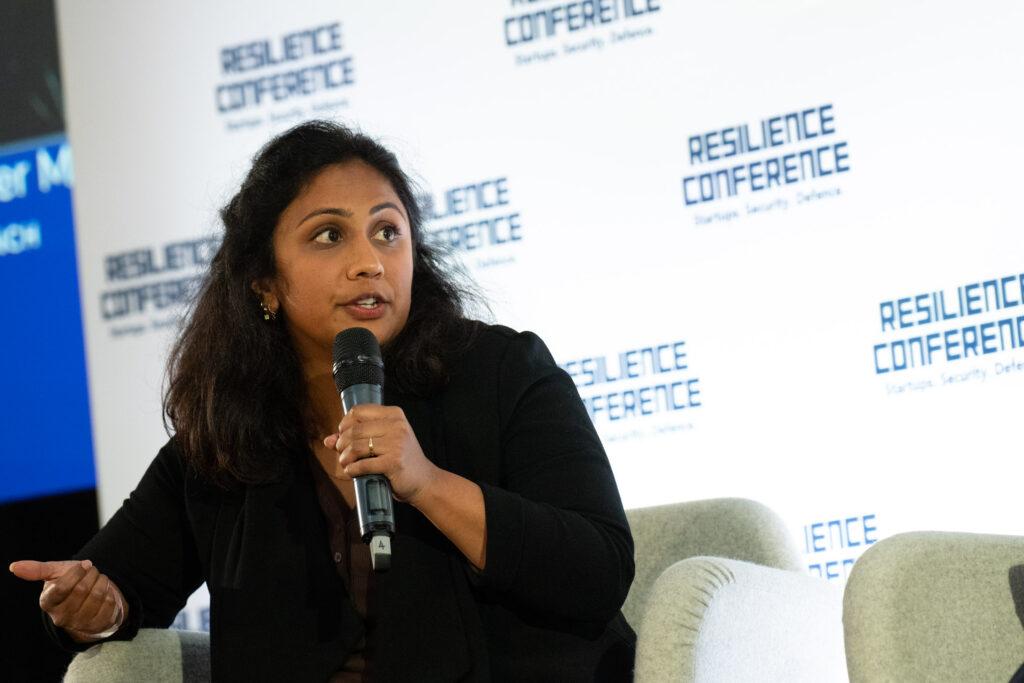
Innovation comes in different forms and from non-traditional suppliers to defence. These are opportunities that business owners and entrepreneurs could potentially miss out on by closing off this avenue, or by not knowing they exist.
One requirement put out by a government agency related to needing batteries to work at minus 40 degrees Celsius. It was a food distribution company that came back with a potential solution.
Global news, local impact
I listened intently to the speaker from GCHQ and there was one part where I asked myself – what must it be like going into work, to be met by reports on all the global threats and conflict underway around the world? From war, nuclear weapons, local terrorism, global terrorism, serious crime, cybercrime, Middle East and further east, and so on.
I just watch the news for a few minutes, catch something on the radio and I can turn it off. I can’t grasp what the toll it might have on someone’s mental health to see the daily reality of it all. Hey, not all heroes wear capes as they say.
A question posited was, can it be fully the responsibility of the state to be the one that does all the protection?
From what I heard, it’s just far too much. I agree that we all must be “mission partners” in keeping our nation safe.
Our role
I have been thinking about this from my personal context, the areas that I get involved in and relating it to national resilience.
One theme that comes to mind is to ensure each and every UK business meets minimum cyber security levels with Cyber Essentials, and there is national support provided to do that, whether it’s implementation or for upgrading outdated computers.
The proceeds of crime can feed serious crime gangs and terrorism. It takes away resources away from other security duties and reduces the productivity of the nation too. The financial and mental health impact of cybercrime hits right at the heart of communities because that is where the owners, staff and families live.
This would be my Call To Action from all this talk on resilience. Defend ourselves from the online criminals and scammers, don’t let the proceeds fund more crime or terrorism.
